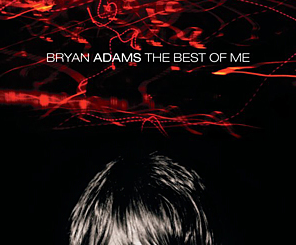Summer of ’69 by Bryan Adams Lyrics Meaning – A Nostalgic Trip Through Rock’s Golden Era
Lyrics
Bought it at the five-and-dime
Played it ’til my fingers bled
Was the summer of ’69
Me and some guys from school
Had a band and we tried real hard
Jimmy quit, Jody got married
I should’ve known we’d never get far
Oh, when I look back now
That summer seemed to last forever
And if I had the choice
Yeah, I’d always wanna be there
Those were the best days of my life
Ain’t no use in complainin’
When you’ve got a job to do
Spent my evenings down at the drive-in
And that’s when I met you, yeah
Standin’ on your mama’s porch
You told me that you’d wait forever
Oh, and when you held my hand
I knew that it was now or never
Those were the best days of my life
Oh, yeah
Back in the summer of ’69, oh
Man we were killin’ time
We were young and restless
We needed to unwind
I guess nothin’ can last forever, forever, no
Yeah
And now the times are changin’
Look at everything that’s come and gone
Sometimes when I play that old six-string
I think about you, wonder what went wrong
Standin’ on your mama’s porch
You told me that it’d last forever
Oh, and when you held my hand
I knew that it was now or never
Those were the best days of my life
Oh, yeah
Back in the summer of ’69, oh
It was the summer of ’69, oh, yeah
Me and my baby in ’69, oh
It was the summer
The summer, the summer of ’69, yeah
The gritty riff of a six-string guitar and the raspy voice of Bryan Adams have cemented ‘Summer of ’69’ into the annals of rock history. But beyond its catchy hook and driving melody, Adams’s anthem is rich with layers that transcend simple nostalgia.
Peeling back these layers, ‘Summer of ’69’ serves as a time capsule that encapsulates the spirit of an era, the poignancy of youth, and the universal journey of change and reflection. Let’s dive deep into the song’s narrative, its cultural significance, and the hidden nuances that continue to resonate with listeners decades after its release.
Strumming on the Strings of Youth
Opening with the purchase of his ‘first real six-string’, Bryan Adams does more than just tell us a story about a guitar. He’s invoking the rawness of young dreams and the fiery passion of someone at the beginning of their journey. The six-string stands as a symbol of wild aspirations and the willingness to endure pain, metaphorically bleeding fingers, for the sake of what one loves.
Adams encapsulates the essence of adolescence, where time seemed infinite and opportunities boundless. The year ’69, while literal, doubles as a marker of an era where rock ‘n’ roll was at its zenith, representing the blissful peak of youth before the inevitable descent into the responsibilities of adulthood.
Band Breakups and Midsummer Heartaches
The band’s dissolution—Jimmy quitting, Jody getting married—serves as a sobering mirror reflecting the fragility of youthful ventures. Such lines speak to anyone who has felt the sting of their first venture falling apart, symbolizing how life’s crossroads often lead to the abandonment of shared dreams.
The chorus, with its wistful reflection and victorious tone, juxtaposes the act of looking back with a sense of both celebration and loss. The ‘best days of my life’, a phrase laden with gravity, suggests that the foundation of our identity is often laid in these fleeting moments of youth and camaraderie.
The Drive-In Romance and its Timeless Resonance
Evoking evenings at the drive-in, Adams paints a portrait of adolescent romance, a chapter of life often marked by a blend of innocence and intensity. The ‘drive-in’ is a quintessential symbol of teen culture during the era, serving as a backdrop for tentative first steps into romance and adult relationships.
The tender scene set on the mama’s porch is where promises are made in the clasp of hands, capturing the earnestness that often accompanies young love. ‘You told me that you’d wait forever’, a line heavy with youthful optimism, is a testament to the way we cling to the present moment, etching it into the narrative of our lives.
Unwinding Restlessness: The Enigma of ’69
The song’s gritty undertone, ‘We were young and restless’, encapsulates the collective spirit of an era defined by its desire to break free from the constraints of the past. This restlessness is emblematic of the period’s social and musical revolutions, where the younger generation sought to ‘unwind’ from conventions and make their own mark on the world.
Yet, there’s also a knowing acceptance that nothing endures. ‘I guess nothin’ can last forever, forever, no’ may seem like a line of resignation, but it’s also a profound acknowledgment of life’s impermanence, a theme that gives the song a depth beyond mere reminiscence.
Intersecting Paths: Reflecting on What Went Wrong
In the years that cascade after the summer of ’69, there’s inevitability in the shifting sands of time—bands break up, lovers part ways, life happens. ‘Sometimes when I play that old six-string, I think about you, wonder what went wrong’—a familiar refrain to anyone who’s pondered the turns their lives have taken.
Adams touches on the bitter taste of hindsight and the complexities of progress and change. Wrapping up the reverie, ‘Summer of ’69’ brings us full circle, to a place where looking back is bittersweet, but where the song itself becomes a source of solace and a bridge connecting past to present.








